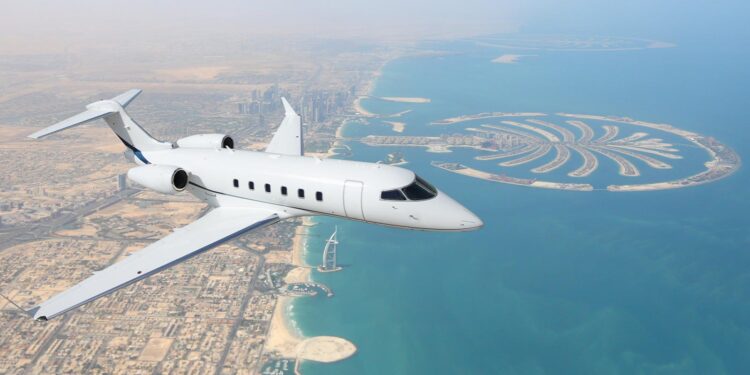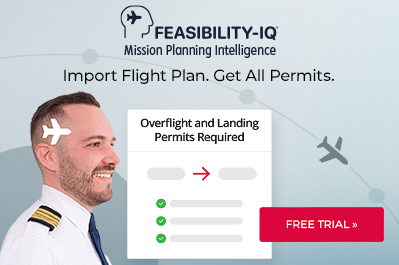10 Popular Airports in the Middle East for Business Aircraft Operators – Part 2 of 2

This business aviation blog post is part two in a series on popular airports in the Middle East for business aircraft operators.
Many good stops are available in the Middle East for business aircraft operators, with 24-hour operations, credit, and full support services. In our previous post, we discussed 5 popular airports in the Middle East: Istanbul, Turkey (LTFJ), Dubai, United Arab Emirates (OMDB), Abu Dhabi Intl, United Arab Emirates (OMAA), Riyadh, Saudi Arabia (OERK), and Jeddah, Saudi Arabia (OEJN).
In no particular order, below is an overview of 5 more popular airports in the Middle East for business aircraft operators:
1. Sharjah, United Arab Emirates (OMSJ)
As in the case of OMDB, landing permits are required for both private non-revenue and charter (non-scheduled commercial) flights with a four working days lead time. Prior permission required (PPR) and airport slots are not needed. Check with your 3rd-party provider on passenger visa requirements. OMSJ is a fairly quiet airport with full services, credit available 24 hours a day, and all major aviation fuel cards accepted. It’s best to make jet fuel arrangements in advance and to consider fueling on arrival. Scheduled commercial airline activity is fairly light compared to many other airports in the region, and tech stops can usually be accomplished in less than an hour.
2. Bahrain, Kingdom of Bahrain (OBBI)
For Bahrain, you’ll need to provide business contact details in the landing permit application, unless it’s just a technical stop. The lead time for landing permits is four working days. An overflight permit isn’t required if your aircraft is registered in an ICAO signatory state. A landing permit is not needed for tech stops including overnight crew rest if aircraft is registered in an ICAO state. OBBI offers full services and credit 24 hours a day, aviation fuel cards are accepted, and quick turns can be accomplished in less than an hour. Jet fuel arrangements should be made in advance. Be aware that occasional airport congestion may cause delays and aircraft parking issues.
3. Doha, Qatar (OTBD)
While OTBD is primarily a destination stop, tech stops may be considered with a turn time of about an hour. Landing permits are required for private non-revenue and charter flights with a four working days lead time. Airport slots are needed due primarily to limited aircraft parking availability, and the deviation is +/-10 minutes. With the exception of a technical stop, a local sponsor is required for all landing permit applications. Passenger visas may be needed, so it’s best to check with your 3rd-party provider on those requirements. Private non-revenue and charter operators will need overflight permits for Qatar. OTBD is a 24-hour airport with full services and credit, except for landing and aircraft parking fees, which must be paid by the crew in cash directly to CAA. Aviation fuel cards are accepted, and it’s recommended that you request jet fuel uplifts in advance.
4. Kuwait, Kuwait (OKBK)
Landing permits are required for all operators with a minimum notice of 48 hours, but four working days lead time is required officially. Landing permit applications must include a local business contact. Prior permission required (PPR) and airport slots are not required at OKBK, but overflight permits are needed with a 48-hour minimum notice and four working days preferred. Due to congestion, OKBK is seldom used for technical stops, but quick turns may be accomplished in about an hour. Confirm passenger visa requirements with your 3rd-party provider, and be aware that cabotage is prohibited within Kuwait. Full services and credit are available 24 hours a day, and major aviation fuel cards are accepted.
5. Beirut, Lebanon (OLBA)
While OLBA is usually a destination stop, rather than tech stop, full support services and credit are available 24 hours a day, and technical turnarounds are possible within about an hour. Major aviation fuel cards are accepted. Plan on four working days lead time for landing permits and provide a business contact, except for technical stops. Documents are required for the landing permit. Examples of such documents include airworthiness and registration certificates, worldwide insurance, and signed last page of your maintenance log to verify your aircraft is airworthy. No PPR or airport slots are required. Overflight permits are needed for both private non-revenue and charter flights, with four working days lead time required. Also, please note that landing permits are needed for all operations to this location.
Conclusion
The Middle East is a straightforward operating environment with reasonable permit lead times. Familiarize yourself with the local culture and customs of the region, dress conservatively, and be aware of local holiday and weekend periods, as weekends differ depending upon the country. Work with your 3rd-party provider to fully understand all local requirements, such as business contact information.
Questions?
If you have any questions about this article, contact me at keithforeman@univ-wea.com.




